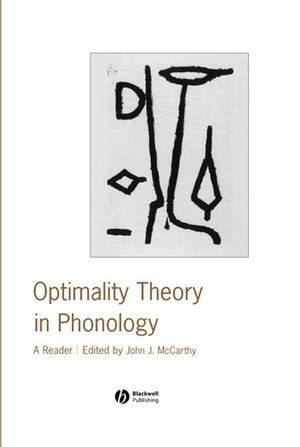Optimality Theory In Phonology A Reader John J Mccarthy by John J. Mccarthy 9780470756171, 9780631226888, 0470756179, 0631226885 instant download after payment.
Optimality Theory in Phonology: A Reader is a collection of readings on this important new theory by leading figures in the field, including a lengthy excerpt from Prince and Smolensky’s never-before-published
Optimality Theory: Constraint Interaction in Generative Grammar.
- Compiles the most important readings about Optimality Theory in phonology from some of the most prominent researchers in the field.
- Contains 33 excerpts spanning a range of topics in phonology and including many never-before-published papers.
- Includes a lengthy excerpt from Prince and Smolensky’s foundational 1993 manuscript Optimality Theory: Constraint Interaction in Generative Grammar.
- Includes introductory notes and study/research questions for each chapter.
Content:
Chapter 1 Optimality Theory: Constraint Interaction in Generative Grammar (pages 1–71): Alan Prince and Paul Smolensky
Chapter 2 Generalized Alignment: Introduction and Theory (pages 72–76): John J. McCarthy and Alan Prince
Chapter 3 Faithfulness and Identity in Prosodic Morphology (pages 77–98): John J. McCarthy and Alan Prince
Chapter 4 Computing Optimal Forms in Optimality Theory: Basic Syllabification (pages 99–117): Bruce Tesar
Chapter 5 Learnability in Optimality Theory (pages 118–140): Bruce Tesar and Paul Smolensky
Chapter 6 Non?Computable Functions in Optimality Theory (pages 141–164): Elliott Moreton
Chapter 7 Generalized Alignment: Prosody (pages 165–177): John J. McCarthy and Alan Prince
Chapter 8 Ternary Rhythm and the *Lapse Constraint (pages 178–190): Nine Elenbaas and Rene Kager
Chapter 9 Quality?Sensitive Stress (pages 191–201): Michael Kenstowicz
Chapter 10 Unbounded Stress and Factorial Typology (pages 202–214): Eric Bakovic
Chapter 11 Head Dependence in Stress?Epenthesis Interaction (pages 215–227): John Alderete
Chapter 12 Feet and Tonal Reduction at the Word and Phrase Level in Chinese (pages 228–245): Moira Yip
Chapter 13 OCP Effects in Optimality Theory (pages 246–268): Scott Myers
Chapter 14 Austronesian Nasal Substitu


